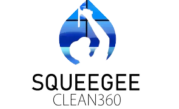Maintaining the exterior of your home can be a challenging task, especially when it comes to choosing the right cleaning method. Pressure washing and soft washing are two popular techniques that homeowners and professional cleaners use to restore the appearance of various surfaces. While they might seem similar at first glance, these methods are distinctly different in their approach, application, and overall effectiveness.
What is Pressure Washing?
Pressure washing is a powerful cleaning technique that uses high-pressure water streams to blast away dirt, grime, and stubborn stains from surfaces. Imagine a concentrated water cannon that can strip away years of accumulated dirt in moments. This method relies on powerful water pressure, measured in pounds per square inch (PSI), to physically remove contaminants. It’s particularly effective on hard, durable surfaces that can withstand intense water pressure without sustaining damage.
Professional cleaners typically use pressure washing for surfaces like concrete driveways, stone pathways, brick walls, and metal structures. The technique is most suitable for areas with heavy dirt accumulation, industrial settings, or exterior spaces that have been neglected for extended periods. The immediate visual transformation can be dramatic, with surfaces looking almost brand new after a thorough pressure washing session.
What is Soft Washing?
In contrast, soft washing takes a more nuanced and gentle approach to exterior cleaning. This method combines low-pressure water application with specialized cleaning solutions designed to eliminate organic matter without causing surface damage. Instead of relying on brute force, soft washing focuses on chemically treating and removing contaminants like mold, algae, and mildew.
Soft washing is particularly beneficial for more delicate surfaces that could be damaged by high-pressure water. Wooden decks, roof shingles, stucco surfaces, and painted exteriors are perfect candidates for this cleaning method. The specialized solutions used in soft washing not only clean the surface but also help prevent future growth of organic matter, providing a longer-lasting clean compared to traditional pressure washing.
Choosing the Right Cleaning Method
The decision between pressure washing and soft washing depends on several factors, including the surface material, type of contamination, and overall condition of the area you’re cleaning. Pressure washing works best on hard, resilient surfaces that can handle intense water pressure. It’s ideal for removing tough stains, accumulated dirt, and providing an immediate visual refresh.
Soft washing, on the other hand, is the preferred method for surfaces that require a gentler touch. It’s especially useful for areas prone to organic growth or those with delicate materials that could be easily damaged by high-pressure water. The cleaning solutions used in soft washing penetrate and eliminate contaminants at their source, offering a more comprehensive cleaning approach.
Potential Risks and Considerations
Both cleaning methods come with their own set of potential risks. Pressure washing can cause surface etching, unexpected paint removal, and water intrusion if not performed correctly. The intense water pressure can damage softer materials or force water into areas where it shouldn’t penetrate. This is why it’s crucial to use the right technique and maintain an appropriate distance and angle while cleaning.
Soft washing isn’t without its challenges either. Improper mixing of cleaning solutions can result in incomplete cleaning, and there’s a risk of chemical residue if the process isn’t performed correctly. The results might not be as immediately visible as pressure washing, which can be a drawback for those seeking instant gratification.
Professional Recommendations
For the best results, it’s always recommended to start with a small test area and carefully assess the surface’s reaction to the cleaning method. Using the right cleaning solutions and maintaining proper technique is crucial. While DIY cleaning is possible, complex or large-scale projects often benefit from professional expertise.
Professional cleaners can assess your specific needs, choose the most appropriate cleaning method, and ensure that your surfaces are cleaned effectively without risking damage. They have the experience, tools, and knowledge to select the right approach for each unique situation.




